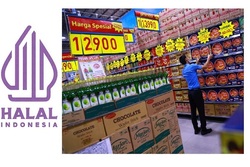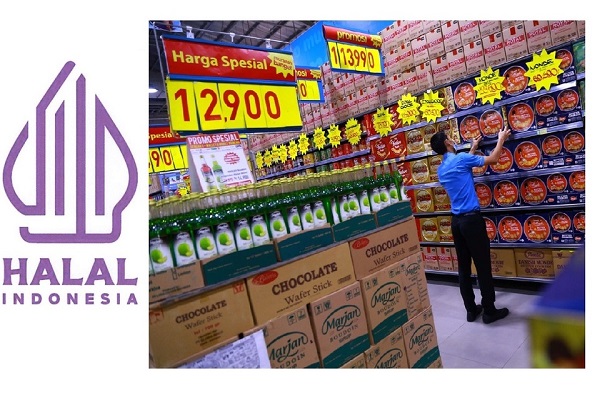Indonesia Introduces New Halal Certification Mark


A minister said that the current logo from the Indonesian Ulema Council, or MUI, will eventually be declared void by the state-appointed regulatory body.
President Joko “Jokowi” Widodo has been working on a new halal regime in a country that has the world’s biggest Muslim population without upending trade and hampering investment since he took office in 2014.
“The halal certification label from the MUI will be declared void in the foreseeable future,” Religious Affairs Minister Yaqut Cholil Qoumas wrote on his Instagram account.
“Halal certification, as the law says, is organized by the government, not a community organization.”
The introduction of the new logo is probably the most significant step in the long and complicated transition as customers and producers will soon notice a change in the country’s halal regime.
The Halal Product Assurance Organizing Agency (BPJPH), an organization under the Religious Affairs Ministry tasked with taking over the MUI in identifying and certifying halal products, actually launched the new logo last month but it didn’t get public attention until the minister went to social media.
BPJPH Chairman Muhammad Aqil Irham said the new logo came into force on March 1 and gradually the MUI mark will no longer be recognized.
The purple logo depicts Arabic calligraphy that reads “halal” and forms a Gunungan (Javanese: mountain), a figure used to open and close Javanese puppet-shadow performance.
The Jokowi administration passed the Law on Halal Product Assurance on October 17, 2014, to provide the legal basis for a new halal regime fully controlled by the government.
But it wasn’t until he won a second term in 2019 that the government began implementing a 5-year phase-in period for the mandatory certification of food, beverages, and animal slaughter process.
After October 17, 2024, the sales of all food, beverages, meat, and poultry in Indonesia must comply with the 2014 law.
Last year, the government launched another 5-year phase-in period for the mandatory certification of drugs, cosmetics, and worn and utilized products.
Worn and utilized goods attributed in halal product regulations are those containing animal elements and may include personal care products, clothing, headwear, accessories, household equipment, food and beverages packaging, stationery, office supplies; and medical devices.
Yaqut said earlier there is a wide range of products to be halal certified that it takes five years for the full implementation of every stage.
"The reach of halal product assurance is very extensive, covering food, beverages, drugs, cosmetics, chemical products, biotech products, genetically modified products, and utilized products commonly used by the people,” Yaqut said.
“A phased implementation of mandatory halal certification is therefore inevitable.”
Prior to the new regime, halal certification and labeling were conducted solely by the MUI, sometimes causing overlapping authorities between the council and the government’s Drug and Food Supervisory Agency (BPOM).
The BPJPH has been overseeing the entire halal certification system since 2019 but it still relies on the MUI for the appointment of halal auditors and the Halal Examination Agency (LPH).
A key difference from the previous regime is that the government is now authorized to evaluate and sanction halal examiners for any non-compliance.
Recent halal quality product regulations are complementary to the so-called omnibus law, which brings together around 80 related laws aimed at bringing major structural reforms in businesses and creating more jobs for the people.
Source: jakartaglobe.id



